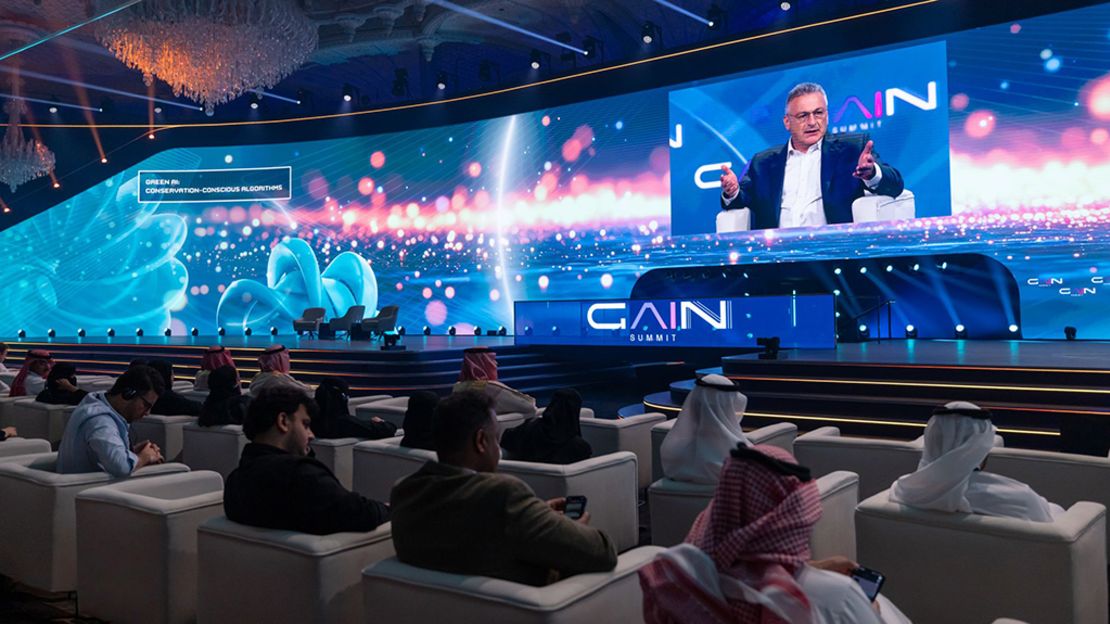As artificial intelligence transforms industries, global leaders gathered in Riyadh to address the challenges of regulation, ethics, and governance at the Global AI Summit (GAIN), themed under “AI for the Good of Humanity.”
The state of affairs
Artificial Intelligence (AI) is rapidly evolving how we do business. From machine learning breakthroughs to the rise of generative AI, it affects everything from healthcare to finance, logistics to energy.
With 64% of businesses experiencing a productivity boost due to AI, this technology is becoming indispensable. Yet, with rapid innovation come challenges: ethical concerns, uneven regulatory frameworks, and disruptions to job markets.
The balance of risk and reward underscores the need for forums that bring together leaders to address the pressing issues of AI governance. The Global AI Summit (GAIN) is one of these events, carving out a path for sustainable, ethical, and unified policies on AI.

A global gathering
Over three days in September 2024, the GAIN Summit proved why it has become a key event in the AI calendar. Providing a platform for leaders from business, policy, academia, and technology to bridge the gap between AI’s potential and its practical application, the third edition of the summit explored solutions to challenges from climate change to productive governance.
The 2024 GAIN Summit set a new standard for ambition around the future of AI, global thinking, and policy. The goal is to ensure that advancements in AI technology benefit everyone, including those in emerging markets.
The summit’s platform, Now, Next, Never, looked at AI’s role in solving issues that resonate across the globe, such as education, culture, and science. It also provided a stage for launching new products, announcing investments, and forming key partnerships.
At the heart of the summit were lively debates on the societal challenges posed by AI. Job Disruption: Is It All Lost? tackled AI’s impact on employment, while Reshaping the Future of Work explored the need to reskill and upskill workers in AI-driven economies.
Tackling disparity
One of AI’s biggest hurdles is the inconsistent global regulatory landscape. In 2023, the EU announced its Artificial Intelligence Act, while the U.S. lacks comprehensive federal regulation, and China continues to develop its own rules. This disparity raises concerns about the future of AI development and application.
The future of AI ethics will depend on continued regulatory development and responsible implementation by companies. GAIN provides a pivotal platform for global stakeholders to come together and hold these discussions.
At the summit, there was a push for collaboration on ethical frameworks and governance standards. Sessions like Keeping the Lights On highlighted the need for international transparency on energy-efficient solutions, while Conservation-Conscious Algorithms examined how cross-border AI data could contribute to combating climate change.

Saudi Arabia played a significant role in setting these new standards, with the Saudi Data and Artificial Intelligence Authority (SDAIA) presenting its AI Ethics Principles and launching its AI Ethics Early Adopters initiative.
This initiative encourages public- and private-sector organizations to prioritize ethical considerations when using AI, promoting awareness and responsible use of AI products. It offers incentives to enhance the trustworthiness of AI products and adopts ethical and advanced practices in AI system development. Organizations receive incentive badges at five risk-based levels—Aware, Adopting, Compliant, Assured, and Pioneer—reflecting the maturity of AI risk-management practices associated with product use.
Taking the lead
Saudi Arabia’s hosting of the GAIN Summit signals its growing commitment to AI innovation. As part of its Vision 2030 initiative, the country is investing heavily in infrastructure, research, and talent development, aiming to position itself as a global leader in the field.
The country is already leveraging AI in sectors like healthcare, where it is improving diagnostics and patient care, and in energy, where smart grids and renewable energies are reducing the reliance on oil. The government is also modernizing public services through AI, making them more efficient and user friendly.
Saudi Arabia is strategically located at the crossroads of major AI markets, and its investments will benefit not only its economy but also the global AI landscape. The Kingdom’s role in fostering international cooperation makes it an ideal host for discussions on AI’s future.
Lasting impact
As artificial intelligence continues to rewrite our future, the need for international cooperation has never been more urgent. Without consistent global frameworks, the risks of ethical, technological, and regulatory problems will only grow.
With the future of global governance depending on collaborative efforts, Saudi Arabia’s leadership in this space, combined with the insights born out of the GAIN Summit, promises to have a lasting impact on the global AI landscape.
To find out more about the GAIN Summit, visit here.

